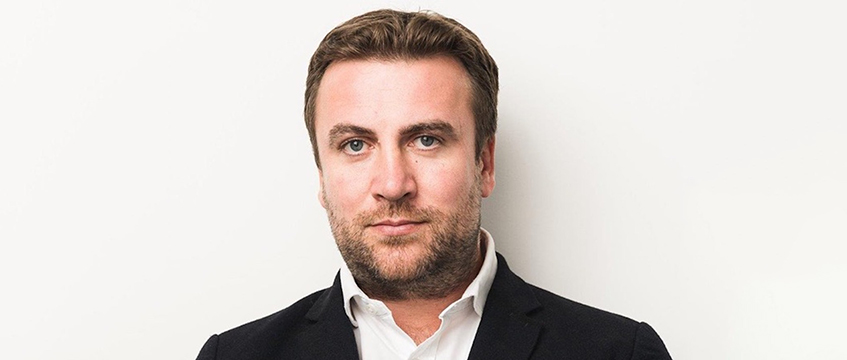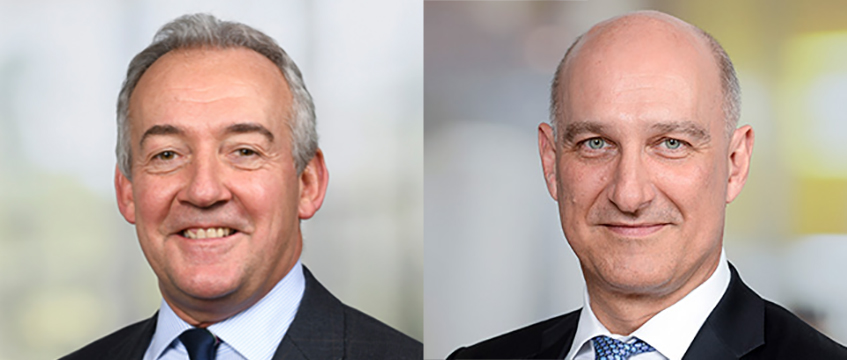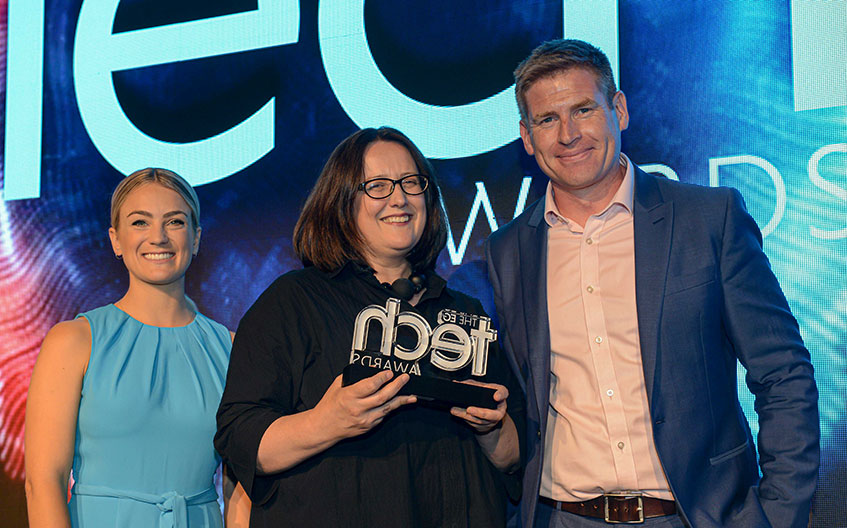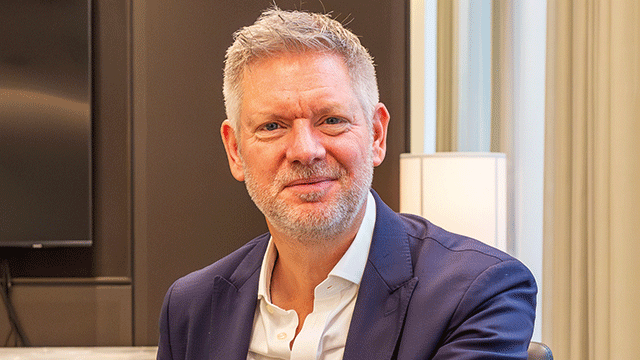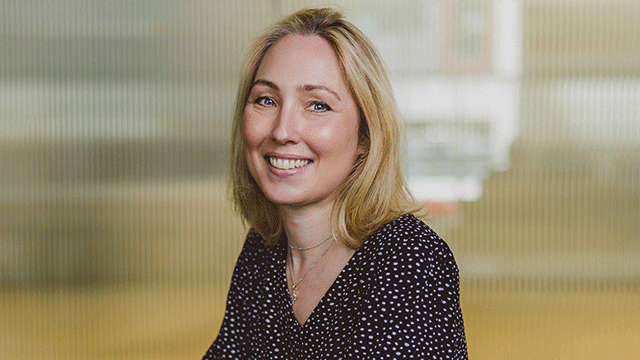Goldacre’s Fionnuala Hogan on being a tech creator
Fionnuala Hogan, managing director for investment at Goldacre, part of the Noe Group, has always been bridging the gap. How else do you explain a maths and music degree?
For Hogan, it is simple. “I was always fascinated by the notions of creativity and how different ideas can influence and change things. And I always loved maths.”
But it was this somewhat strange combination of subjects that set Hogan on the path to Goldacre, and into a role that saw her pick up the coveted Bridging the Gap Award at this year’s EG Tech Awards.
Fionnuala Hogan, managing director for investment at Goldacre, part of the Noe Group, has always been bridging the gap. How else do you explain a maths and music degree?
For Hogan, it is simple. “I was always fascinated by the notions of creativity and how different ideas can influence and change things. And I always loved maths.”
But it was this somewhat strange combination of subjects that set Hogan on the path to Goldacre, and into a role that saw her pick up the coveted Bridging the Gap Award at this year’s EG Tech Awards.
Hogan began her professional career in the City with seven years at investment bank Kleinwort Benson working in corporate finance, M&A and fundraising. She loved it, she says, but was fascinated by the companies she was doing work for – so left the investment bank to join a dot.com instead.
That dot.com was Enba Group, one of the first dot.com companies to have a banking license and one of the first B2B software comparison platforms for financial products. Unfortunately, like so many other dot.coms, it was just a bit too early in the market and, says Hogan, “the cost of development of what we were doing, related to the pathway to profit and revenue, just didn’t work”.
But something about the start-up world had clicked with Hogan, so she moved to another fledging company – a real estate financing bank that became Hypo Real Estate. A DAX-30 listed entity which grew from zero revenues to €17-18bn in revenues a year.
Then 2007 hit. But Hogan bridged the gap again, and moved over to co-head the bank’s workout book. A role that gave her insight and knowledge across all sectors of real estate.
“We had a very hands-on, asset management approach so ended up owning and developing and selling quite a lot of real estate. Everything from care homes, hotels, hospitals, residential, anything. You name it, we probably had some experience in it,” says Hogan. “So coming to Goldacre just felt like a really natural combination of my interest in and my passion for being part of building businesses for innovation, for tech, and my understanding of real estate.”
It seems like a natural step to join a firm focused on a sector where failure isn’t necessarily celebrated, but it is not brushed under the carpet. Indeed for Hogan, being able to fail fast, learn and move on is a vital characteristic for any successful entrepreneur.
She says: “It’s a wonderful thing to be an entrepreneur or a creator, and it is driven by huge passion and huge drive. But it takes a lot of resilience, it takes an ability for things not to work out and to be able to turn the page – and turn the page quickly, but intelligently.”
Fufillment of desires
Hogan joined Goldacre in 2015 and set up its accelerator RELab last year, as a way to enable the business to deliver on its goal of investing in early stage tech in the built environment. The programme has already accelerated six start-ups and is gearing up for its second round later this year.
The fact that it is built environment, not proptech or real estate tech that Goldacre is keen to invest in, is massively important to the team. Technological innovation should not be about an individual building, but the entire ecosystem.
“If you think about real estate, it is about this extraordinary conversation that is ongoing, that is iterative, that is continually developing between space and the people who use that space. The buildings don’t exist in isolation. They exist in a physical environment that sits around them,” says Hogan.
She adds: “Technology is allowing us to expect instant fulfilment of all sorts of desires, whatever they might be, but we have all the challenges that come with that. The implications of scarce resource and what that means for energy management both in a building and in the wider city environment, what it means for wellbeing, again within an office, but also more widely in terms of air pollution.
“So when we talk about the built environment, we’re really talking about the opportunities and the interesting things that are happening in relation to specific types of buildings, but also how they sit within a wider city environment. It’s that triangle of conversation between space, uses of space, and what sort of infrastructure we need to be sitting in that space and how we manage that resource.”
It’s a big space to be active in, and Hogan says the business does have key themes that it is focused on with round two of RELab.
“We look very much at B2B primarily, and are particularly interested in innovation that’s coming from IOT, AI, automation and to some degree AR, VR. We think it’s a little bit further out, but we’re really interested in some of the developments happening in that world,” says Hogan.
“We’re particularly interested in people that are exploring ways of using that in smart building management, in construction tech and a little bit into cybersecurity, which goes hand-in-hand with smart buildings.”
Scale-ups with products that touch the urban logistics and micro fulfilment sectors or environmental areas such as smart energy management and air quality will also pique the interest of Goldacre.
Alongside having a vast built environment in which to try and find the next big, sustainable innovation – one that has staying power – any real-estate backed business looking to tech has to fight off the inevitable “dinosaur” comparisons.
But for Hogan, real estate’s late arrival into tech should be view very much as a benefit, not a curse.
“We’ve been a little later to the party in terms of tech-driven change,” she says, “and the really great thing about that is that while the technology is evolving and changing at an incredible rate, you’re rarely in a situation where you’re thinking ‘Does this tech work at all?’. You have a sense that the fundamentals of it work, and it is just a question of how it evolves and how you develop it.”
Listen to EG’s interview with Goldacre’s Fionnuala Hogan by subscribing to EG’s TechTalk Radio podcast, available on all of your favourite players including Spotify, Podbean and Apple Podcasts. Download the podcast here.
To send feedback, e-mail samantha.mcclary@egi.co.uk or tweet @samanthamcclary or @estatesgazette




